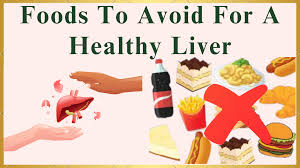Your liver plays a major role in keeping you healthy by removing toxins, processing nutrients, and supporting digestion. That’s why knowing how to keep your liver healthy is essential. To maintain liver health, make smart lifestyle choices. Wondering how to keep your liver healthy naturally? Start with a nutritious diet, regular exercise, and avoiding harmful substances.
If you’re asking, “How can I keep a healthy liver?” this guide offers simple tips to protect and improve liver function. A key factor to consider is how alcohol affects your liver. Excessive drinking can cause fatty liver, inflammation, and cirrhosis, leading to serious damage. Understanding how alcohol affects your liver helps you make healthier choices and prevent long-term issues.
What is the Liver?
The liver, located in the upper right abdomen, is a vital organ that weighs about 3 pounds and performs over 500 essential functions. It filters toxins, stores energy, and aids digestion. Keeping it healthy is crucial for your overall well-being. Poor lifestyle habits like excessive alcohol, sugary drinks, and processed foods can damage the liver. To maintain liver health, eat a balanced diet with fruits, vegetables, and whole grains. Stay hydrated, exercise regularly, avoid toxins, limit alcohol, and get vaccinated for hepatitis. How to keep your liver healthy starts with simple, consistent lifestyle choices.
What Foods To Avoid For Liver Health?

Some of the worst foods for fatty liver include:
- Alcohol: Damages liver cells and increases fat buildup.
- Red and Processed Meats: High in unhealthy fats that stress the liver.
- Refined Grains: Cause fat accumulation due to low fiber and high sugar content.
- Sugary Foods and Drinks: Promote non-alcoholic fatty liver disease.
- Ultra-Processed Foods: Loaded with harmful additives and trans fats.
Let’s look closer at each category of foods to understand their impact on liver function. From processed foods high in unhealthy fats to sugary beverages that burden the liver, making informed dietary choices is crucial. By identifying the foods to avoid for liver health, you can take proactive steps to support liver function, reduce inflammation, and prevent long-term damage.
What Does the Liver Do?
Your liver does a lot of heavy lifting for your body. It breaks down fats, proteins, and carbohydrates, turning them into energy or nutrients. It also produces bile, which helps you digest fats. The liver removes harmful substances like alcohol and drugs from your system. Additionally, it stores important vitamins and minerals for later use. Knowing how to maintain liver health starts with appreciating its essential jobs. By eating right and avoiding harmful habits, you can help your liver thrive. This knowledge is key if you’re looking for guidance on how to keep your liver healthy naturally.
Risk Factors for Liver Disease
Several things can put your liver at risk:
- Unhealthy Eating: Too much sugar, salt, or unhealthy fats can strain your liver.
- Alcohol: Drinking too much alcohol is one of the biggest risks for liver damage. It’s important to understand how alcohol affects your liver to avoid this harm.
- Obesity: Being overweight increases your chances of fatty liver disease.
- Medications: Overusing certain drugs can harm your liver.
- Viruses: Hepatitis B and C are common causes of liver disease.
Learning how to keep your liver healthy naturally means avoiding these risk factors whenever possible and being mindful of the food to avoid for liver health.
5 Essential Tips on How To Keep Your Liver Healthy
Your liver plays a crucial role in detoxifying your body, producing essential enzymes, and metabolizing nutrients. Here are five key tips on How To Keep Your Liver Healthy:
- Eat a Nutrient-Rich Diet – Incorporate liver-friendly foods like leafy greens, berries, garlic, and fatty fish while avoiding processed foods, refined sugars, and trans fats that contribute to liver stress.
- Limit Alcohol Consumption – Excessive drinking leads to liver damage, fatty liver disease, and cirrhosis. Moderation or complete avoidance helps maintain liver health.
- Stay Hydrated – Drinking enough water supports liver detoxification and overall body function. Green tea and lemon water can further aid liver cleansing.
- Exercise Regularly – Engaging in physical activities like walking, jogging, or yoga helps reduce liver fat and promotes better metabolism.
- Avoid Harmful Toxins – Minimize exposure to chemicals found in processed foods, medications, and household products, as they can strain liver function.
By adopting these lifestyle habits, you can strengthen your liver and ensure long-term health.
What Are the Symptoms of Liver Problems?
Liver problems often start quietly but can lead to noticeable symptoms like:
- Tiredness or weakness.
- Yellowing of the skin or eyes (jaundice).
- Swelling in the legs or belly.
- Dark-colored urine or pale stools.
- Loss of appetite or nausea.
if you notice these signs, see a doctor right away. Early care can make a big difference in your liver’s recovery. How can I keep a healthy liver? Start by listening to your body and addressing symptoms early to better understand how to maintain liver health.
How Alcohol Affects the Liver
When you drink alcohol, your liver works hard to break it down. How alcohol affects your liver depends on how much you consume and how often. Alcohol is metabolized into acetaldehyde, which can be toxic to liver cells. This process can lead to inflammation, scarring, and other damage. How alcohol affects liver function over time can include fatty liver, alcoholic hepatitis, and even cirrhosis. The liver’s ability to detoxify your body becomes compromised when it is overwhelmed by alcohol. It’s important to understand that how much alcohol affects the liver differs from person to person, but heavy drinking over the years can lead to chronic liver disease.
What Are the Best Foods to Eat for Your Liver?
Eating the right foods is a great way to keep your liver strong. Some top picks are:
- Leafy Greens: Spinach and kale help flush out toxins.
- Fatty Fish: Salmon and tuna reduce inflammation.
- Berries: Blueberries and cranberries are rich in antioxidants.
- Nuts: Almonds and walnuts support liver health.
- Garlic: Helps activate liver enzymes that clear toxins.
Eating these foods is an excellent start if you’re wondering how to keep your liver healthy naturally.
What Else Can You Do to Keep Your Liver Healthy?
Besides eating right, here are other tips:
- Stay Active: Exercise helps prevent fat buildup in the liver.
- Avoid Smoking: Tobacco can harm your liver.
- Drink Water: Staying hydrated helps flush out toxins.
- Limit Alcohol: Drinking too much alcohol can lead to liver disease.
- Get Vaccinated: Protect yourself from hepatitis A and B.
Following these steps can help you figure out how to keep your liver healthy and how to maintain liver health, so it keeps functioning well for years to come.
Conclusion
Now you know how to keep your liver healthy and why it matters. Your liver plays a vital role in detoxification, digestion, and metabolism, making it essential to prioritize its health. Start by eating a well-balanced diet rich in leafy greens, fruits, whole grains, and lean proteins while avoiding processed foods, excess sugar, and unhealthy fats—key food to avoid for liver health. Staying active through regular exercise helps reduce liver fat and improves overall function. Hydration is key—drink plenty of water to support detoxification.
Limiting alcohol intake and avoiding harmful substances like tobacco and excessive medications can prevent liver damage. Additionally, maintaining a healthy weight and managing underlying conditions like diabetes or high cholesterol can reduce the risk of fatty liver disease. If you’re unsure how to keep a healthy liver, start small, focus on how to maintain liver health, and make choices that help you keep your liver healthy naturally.
Read also How to Prevent Liver Cirrhosis
